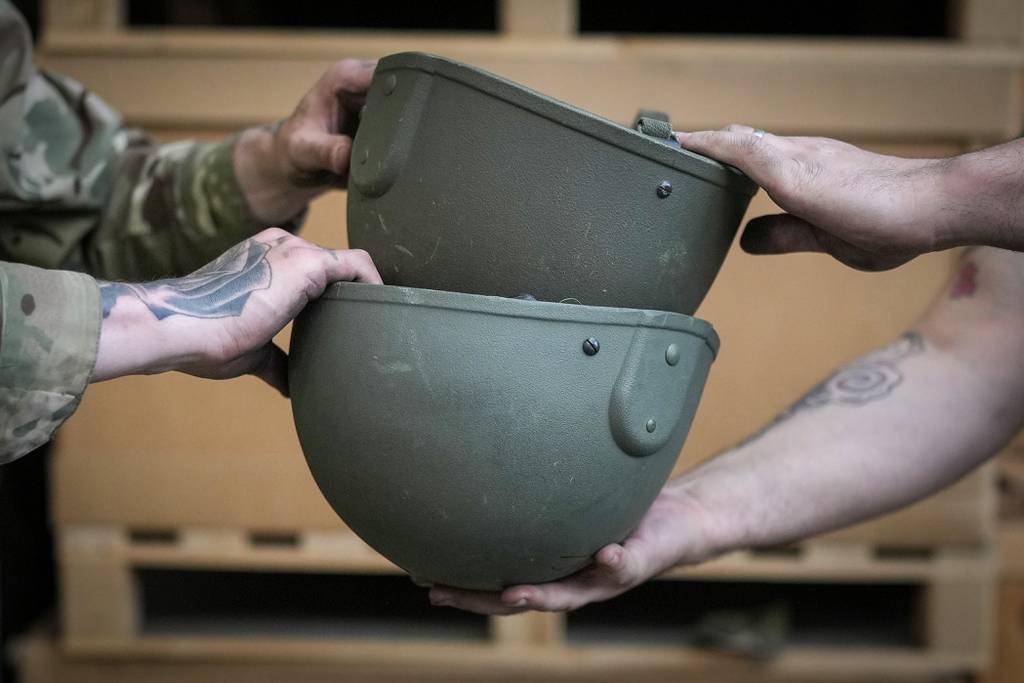
LONDON — The British Defence Ministry’s alleged failure to adequately manage stocks of spares and supplies puts military personnel at risk, according to the parliamentary committee that oversees government spending.
The Public Accounts Committee claimed that outdated systems, the poor quality of cataloged data and the fragmentation of inventory management are partly the cause. Some of the inventory management systems used by the British Army and Royal Navy are nearly 40 years old, the committee noted in report, published Jan. 19.
The inventory management sector is responsible for 740 million individual items stored for the British military, ranging from bombs and clothing to medical supplies and helicopter rotors.
“Armed forces personnel put themselves in harm’s way in defense of our nation and deserve to expect that the equipment they require to do so will be there when they need it,” said Meg Hillier, the committee chair. “Our committee warned over a decade ago of waste and fragmentation in the MoD’s supply systems, and our report finds that many of those problems remain unresolved and without the right powers to address them.”
The report highlighted a problem with the Royal Navy’s medical supplies as an example of how inventory mismanagement could result in serious consequences for personnel.
The report said the ministry had failed to consider the needs of its medical operations as part of a supply chain outsourcing deal awarded to a Leidos-led consortium in 2015, known as Logistics Commodities and Services Transformation Program, or LCST.
Military units had poor access to their medical inventory as a result, and were supplied with items without the shelf life for long-term deployments.
In 2022, the Navy assessed the situation as “presenting a significant risk to life” for its personnel if left unresolved. But in 2023, the performance for medical equipment had still not improved to the required level, the report stated.
Overall, however, LCST has proved a success for the ministry, with forecasts noting the deal will save £403 million (U.S. $510 million) by the end of the contract in 2028, when the £1.8 billion Future Defence Support Services program takes its place.
“It [the MoD] is still holding substantial amounts of inventory that is unserviceable, overstocked or beyond the service date of its related platform,” the committee said.
Andrew Chuter is the United Kingdom correspondent for Defense News.
- SEO Powered Content & PR Distribution. Get Amplified Today.
- PlatoData.Network Vertical Generative Ai. Empower Yourself. Access Here.
- PlatoAiStream. Web3 Intelligence. Knowledge Amplified. Access Here.
- PlatoESG. Carbon, CleanTech, Energy, Environment, Solar, Waste Management. Access Here.
- PlatoHealth. Biotech and Clinical Trials Intelligence. Access Here.
- Source: https://www.defensenews.com/global/europe/2024/01/19/british-lawmakers-slam-military-over-management-of-equipment/
- :has
- :is
- :not
- 19
- 2015
- 2022
- 2023
- 2028
- 40
- 70
- 8
- a
- access
- According
- Accounts
- address
- adequately
- ago
- alleged
- amounts
- an
- and
- ARE
- Army
- AS
- assessed
- At
- awarded
- BE
- Beyond
- Billion
- British
- British Army
- but
- by
- Cause
- chain
- Chair
- claimed
- Clothing
- committee
- Commodities
- Consequences
- Consider
- consortium
- contract
- could
- data
- Date
- deal
- decade
- defence
- Defense
- deployments
- deserve
- do
- end
- equipment
- example
- expect
- Failed
- Failure
- finds
- For
- Forces
- forecasts
- fragmentation
- from
- future
- Government
- government spending
- had
- helicopter
- Highlighted
- holding
- How
- However
- HTTPS
- if
- images
- improved
- in
- individual
- inventory
- Inventory Management
- IT
- items
- ITS
- Jan
- jpg
- Kingdom
- known
- lawmakers
- left
- Level
- Life
- logistics
- long-term
- manage
- management
- many
- medical
- medical equipment
- Military
- million
- ministry
- nation
- nearly
- Need
- needs
- news
- noted
- noting
- of
- Old
- Operations
- or
- our
- Outsourcing
- over
- Parliamentary
- part
- performance
- Personnel
- Place
- platform
- plato
- Plato Data Intelligence
- PlatoData
- poor
- powers
- Problem
- problems
- Program
- proved
- public
- published
- put
- Puts
- quality
- ranging
- related
- remain
- report
- require
- required
- responsible
- result
- right
- Risk
- royal
- s
- Said
- Save
- sector
- serious
- service
- Services
- Shelf
- significant
- situation
- So
- some
- Spending
- stated
- Still
- Stocks
- stored
- substantial
- success
- supplied
- supplies
- supply
- supply chain
- support
- Systems
- takes
- that
- The
- the United Kingdom
- their
- Them
- themselves
- There.
- they
- those
- to
- Transformation
- u.s.
- United
- United Kingdom
- units
- used
- warned
- Waste
- Way..
- were
- when
- will
- with
- without
- years
- zephyrnet












